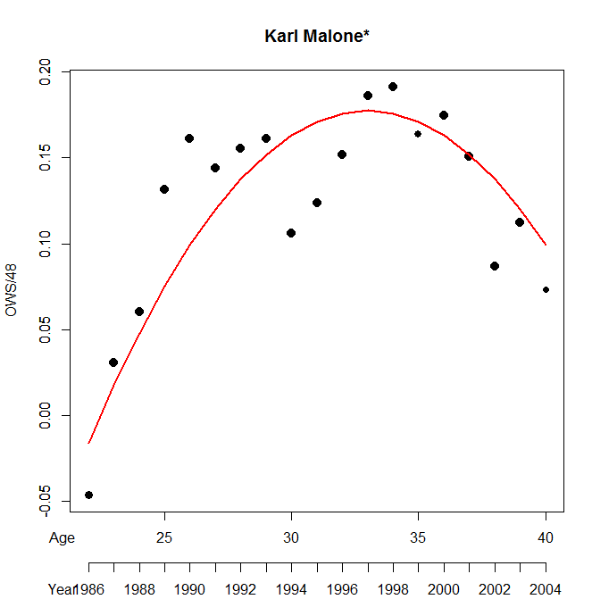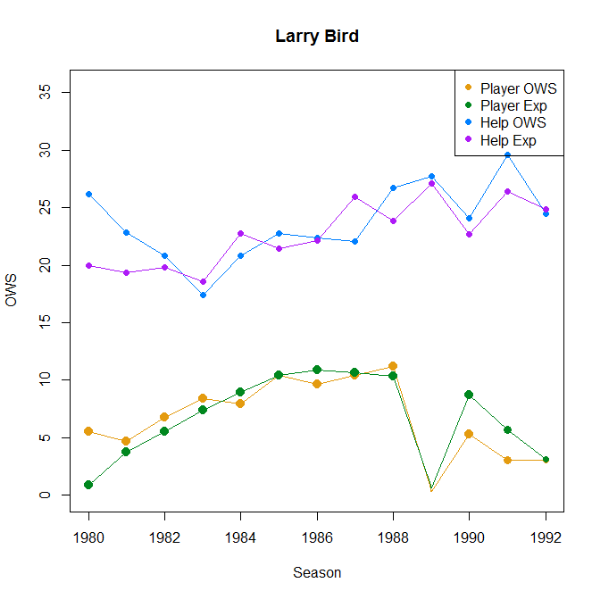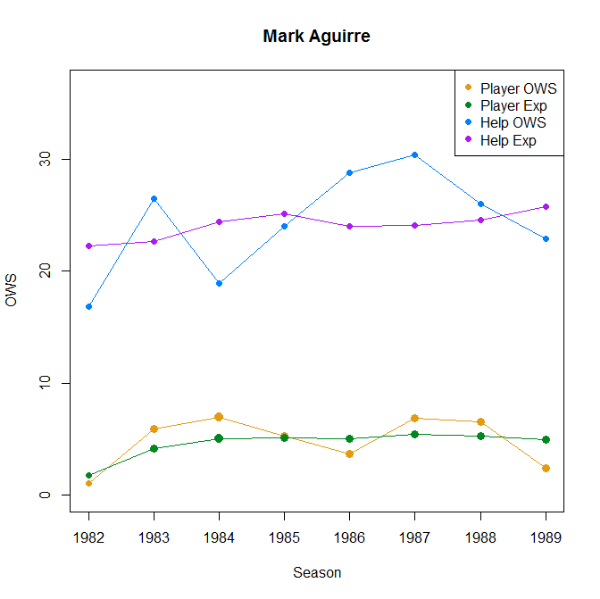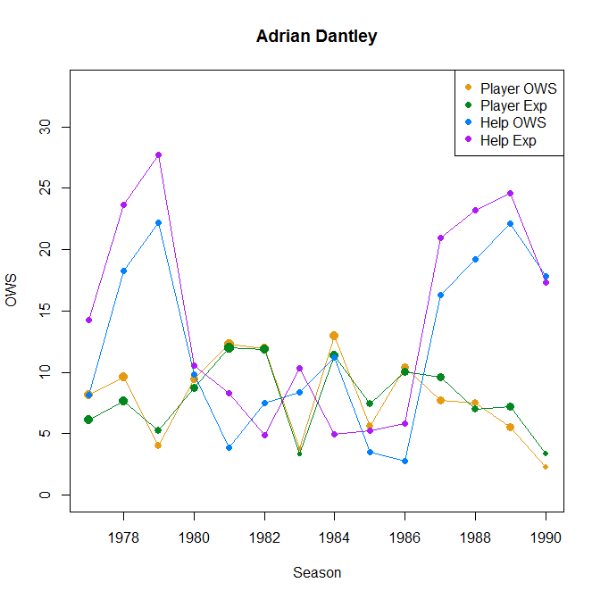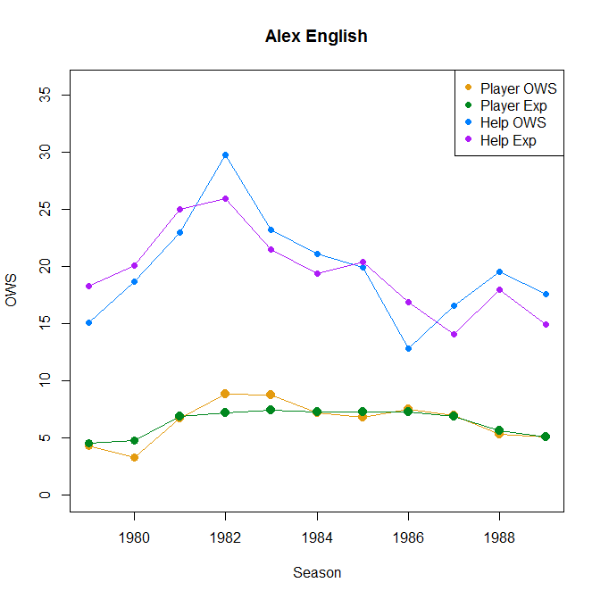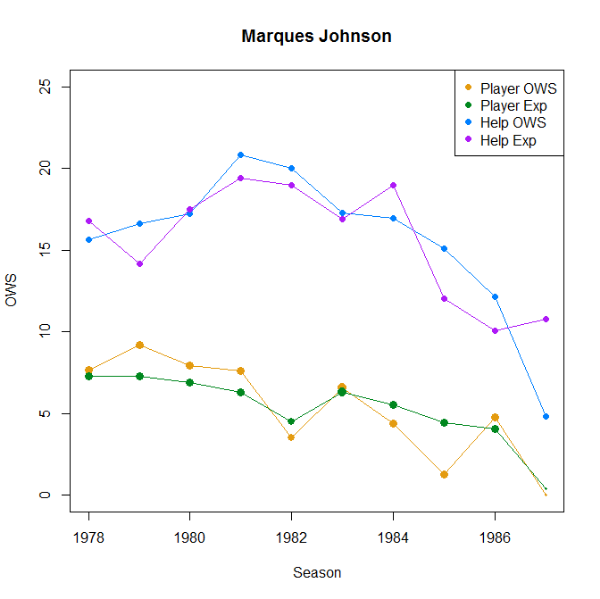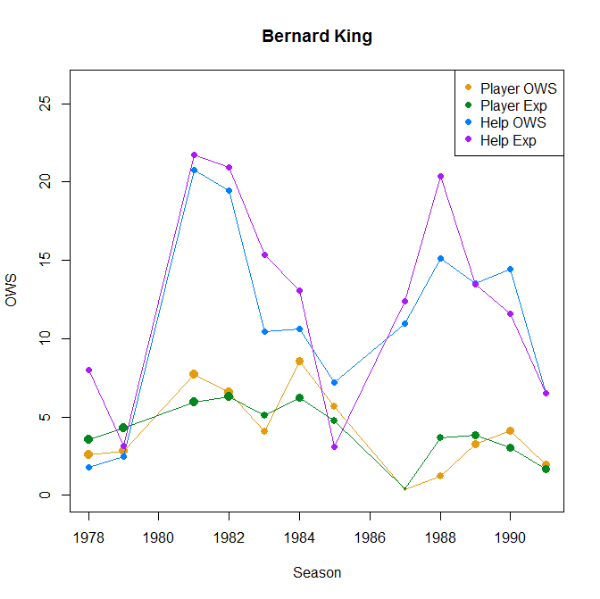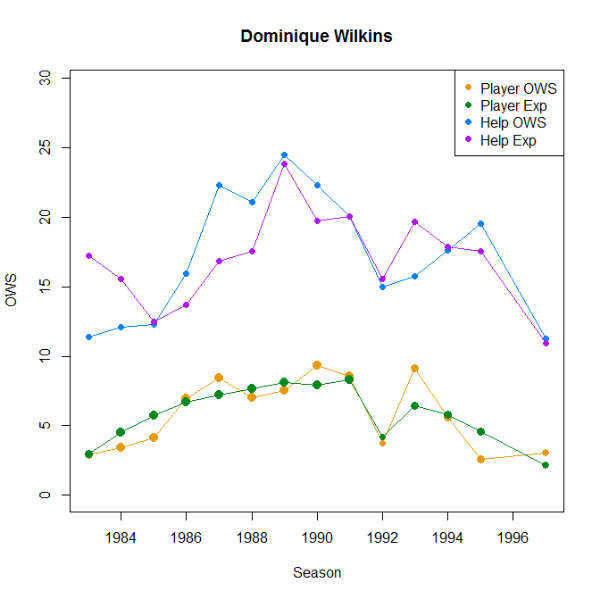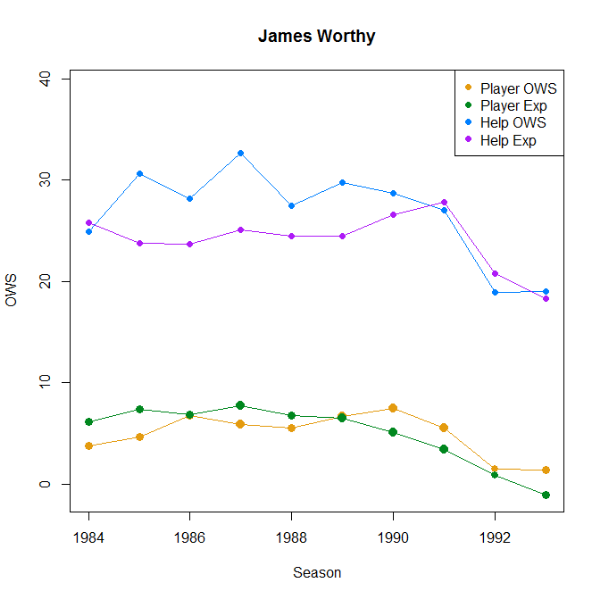Post#20 » by Outside » Wed Nov 1, 2017 11:57 pm
Ready to re-engage after a business road trip and miscellaneous hoo-ha that followed. Trying to catch up, but it's interesting to see who got in in the interim. Sadly, it looks like multiple threads went by with minimal participation by the group, but I suppose that's the nature of the project.
As for who is left on the board and in the discussion...
Iverson. Gets a lot of credit for dragging the 2001 Sixers to the finals (and winning a game over those juggernaut Lakers), but he has a surprisingly light playoff resume overall. Has various negatives that drag him down, such as defense and efficiency, but the most damning thing for me was how he was basically abandoned by the league after 2009-10 despite being only 34 and still seemingly able to play, partly because he wasn't willing to transition to a lesser role and partly because teams didn't want to deal with his baggage.
Elvin Hayes. like Iverson, another interesting mix of pluses and minuses. Impressive accumulation of stats over a long career, but poor efficiency and poor leadership/chemistry marks. Production that's hard to ignore, but he's tough for me to place because of those negatives.
Adrian Dantley. Okay, I guess everyone in this range is hard to peg. Dantley could score and had a nice peak. Negatives: ball-stopper, mediocre longevity for his era, only made the playoffs in seven seasons and only once during his peak production, being traded away for Aguirre is what put the Pistons over the top.
James Harden. Superb offensive skills, excellent production once he left OKC and became a featured player. Negatives: horrific defense, playoff stats overall look good but he has repeatedly performed poorly in the most important playoff situations. I cannot even begin to consider him until we go through a bunch of guys who made a mark as playoff performers.
Tracy McGrady. His pluses are apparent. I downgrade him significantly for never winning a playoff series. That automatically drops him 20-25 spots on the list for me.
Alex English. Excellent scorer, nice peak. Negatives: poor defense, stats perhaps inflated by the Doug Moe run-and-gun style, never seemed a serious threat to any of the true contenders of his era (more entertaining than dangerous).
Dave Cowens. MVP and main player on multiple championship teams -- are there any guys left who match that description? Excellent rebounder. The ultimate undersized overachiever who played with passion and grit. Negatives: weak longevity, efficiency, production fell off a cliff once he lost his athleticism.
Vince Carter. Very good production, impressive career totals built through excellent longevity, has shown ability/willingness to adapt his game and role late in his career, well-regarded character guy, particularly in the second half of his career. Negatives: was more of a me-guy early in his career, his Toronto teams underperformed in the playoffs during his peak as a featured player, amassed stats during his peak on teams that weren't serious contenders.
Vote: Nate Thurmond
Alternate: Dave Cowens
It's disappointing to see Nate drop this far. Looking at how almost everyone else evaluates players, it's based on metrics that aren't available for Thurmond, so all that's left is evaluating him on his offense, where the one metric that is available, shooting efficiency, is the weakest part of his resume. His rebounding gets discounted because of the era, blocks and steals weren't recorded, on/off data isn't available, defensive impact isn't available for individual players and team defense is good but doesn't stand out because his teams had relatively few good defensive players.
He was among the very best all-time at individual defense, team defense, shotblocking, and rebounding, and he is acknowledged as an excellent leader and teammate.
He made it to the finals twice, with Wilt in his rookie season where they lost to the Celtics (a team Russell has called the best he played on) and in 1967 where they lost to Wilt's Sixers (who set the record for wins that season and a team considered among the best of all time).
He is one of the very few to have his jersey retired twice, by the Warriors and the Cavs. The retirement by the Cavs is the more instructive one for my argument, because he only played parts of two seasons there at the end of his career, yet his leadership and character were considered crucial to creating a winning team. Thurmond didn't play much and wasn't near the player he'd been previously -- 17.4 MPG, 4.6 PPG, 5.3 RPG -- but the team hadn't been to the playoffs in the five seasons since they entered the league, and Thurmond was instrumental in turning them around. He taught them how to win.
From a description of the "miracle at Richfield" team:
The principals in the four-player trade were Nate Thurmond and Steve Patterson. Thurmond, 34 and on the downside of what turned out to be a Hall of Fame career, was playing out of position at the high post for the Bulls.
Patterson, 27. was the high-post passing center Bulls coach Dick Motta sought. Thurmond, from Akron Central High and Bowling Green, brought more than rebounds and blocked shots to the young Cavaliers.
"The first time Nate walked into our locker room,'' said Fitch, "he had the respect of everyone on our team."
The Cavaliers were 6-11 and going nowhere when Thurmond arrived. They went 43-22 the rest of the way to finish the regular season 49-33, setting up the best-of-seven playoff series against the Bullets.
Playing 17.4 minutes a game behind Jim Chones, Thurmond averaged 4.6 points, 5.3 rebounds and 1.3 blocked shots. Fitch occasionally put Chones and Thurmond on the court at the same time. Chones, 26, was in awe of Thurmond.
"I loved playing with Nate,'' Chones said, "because you didn't have to rebound. See, Nate got every rebound. There were no offensive rebounds for the other team, because Nate got every defensive rebound.
"When the ball went off the rim, you just turned around and started going the other way. I learned so much from Nate. He had arrogance. He was cool, just one of those old cool guys."
From the statement by the Cavs when Nate died:
Nate’s jersey hangs in the rafters at The Q because of the unselfish way the Akron native and Hall of Famer approached the game we all love, the teammate that he was, his profound impact on one of the most special seasons in Cavaliers history, and the way that all translated on and off the court to reflect the 'All for One. One for All.' code. Just as Nate always held the Miracle team, the Coliseum crowds and his local roots dear to him, the Cavaliers franchise will always love and respect him as a true Cavalier legend.
This for a guy who played for them only a season and a half at the end of his career.
I truly wish we had the stats to back up my argument about his defensive impact. A few stats that I do have:
-- NBA record for rebounds in a quarter - 18
-- One of only four players with 40 rebounds in a game (Russell, Chamberlain, Lucas)
-- One of only five players to average 20 rebounds for a season (Russell, Chamberlain, Pettit, Lucas)
-- One of only five players to average 15 rebounds for a career (Russell, Chamberlain, Pettit, Lucas)
-- 10th all time in career rebounds
-- Averaged 15.0 points and 15.0 rebounds for his career
-- Five consecutive seasons averaging 20 PPG
-- One of only four players to record a quadruple-double
-- First team All-Defense twice, second team three times (All-Defense not recognized until his 6th season)
-- Six seasons with MVP shares, including 2nd in 1966-67 (behind Wilt, ahead of Russell, Robertson, and Rick Barry)
I'm really sorry that his shooting efficiency was a couple of points under league average. Nate Thurmond was much, much more than that.
If you're not outraged, you're not paying attention.







